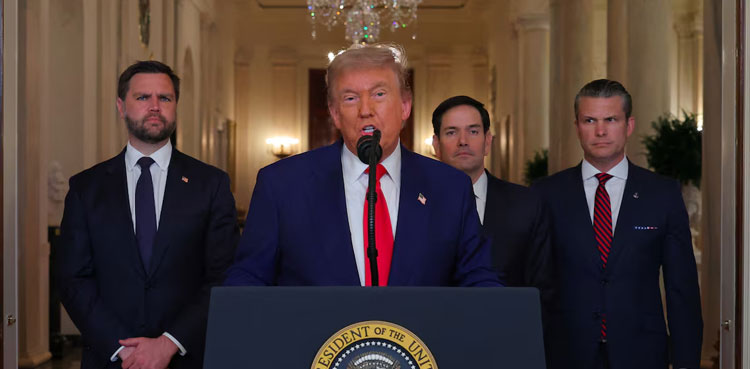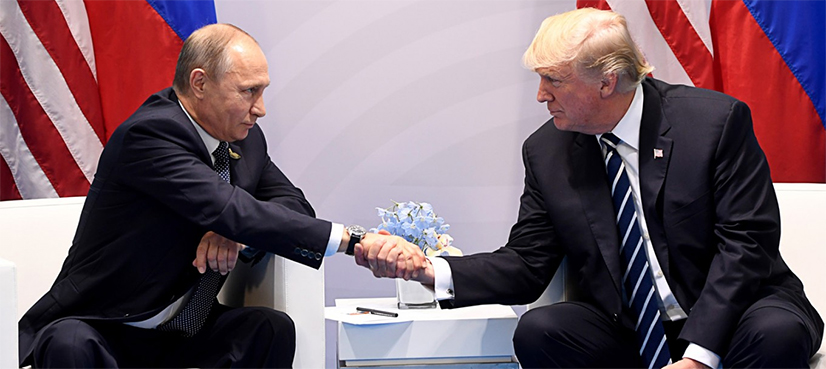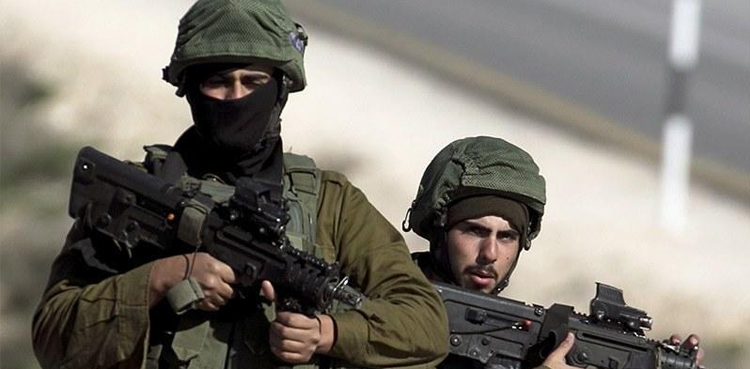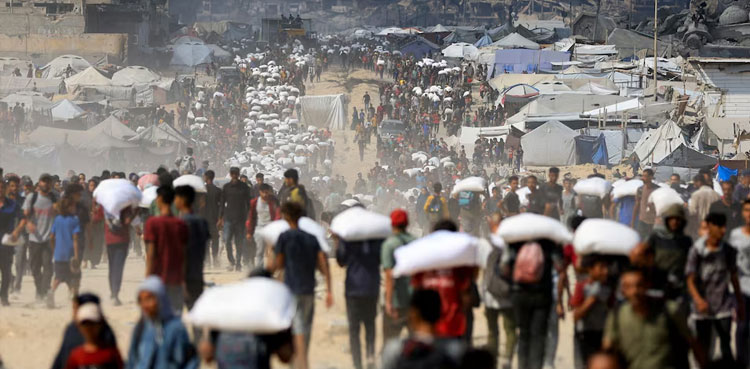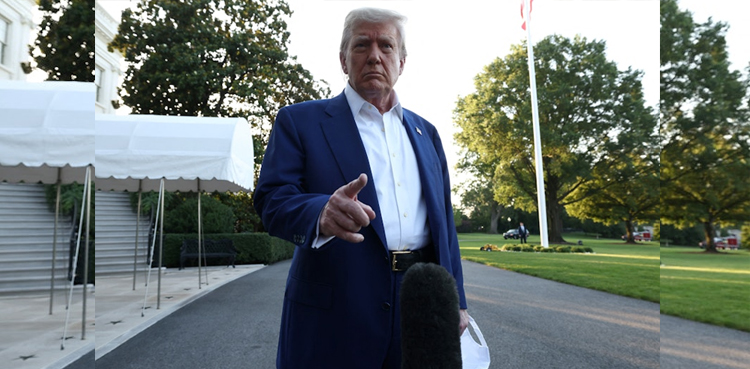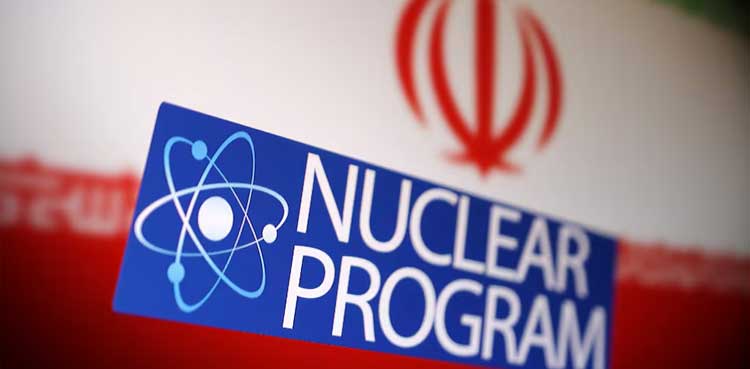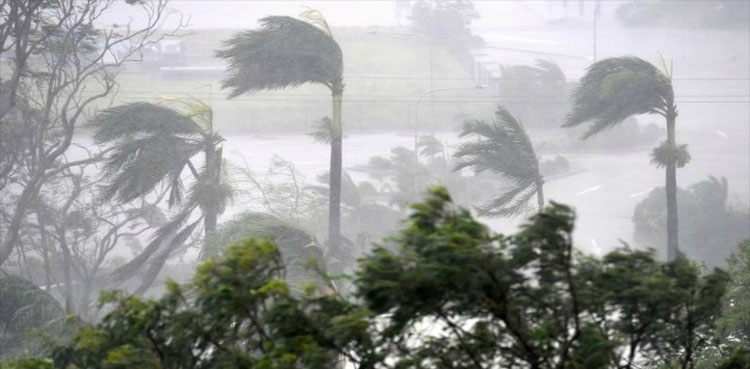ANCHORAGE, United States: Donald Trump and Vladimir Putin made no breakthrough on Ukraine at their high-stakes summit on Friday, pointing to areas of agreement and rekindling a friendship but offering no news on a ceasefire.
After an abrupt ending to three hours of talks with aides, Trump and Putin offered warm words but took no questions from reporters — highly unusual for the media-savvy US president.
“We’re not there yet, but we’ve made progress. There’s no deal until there’s a deal,” Trump said.
He called the meeting “extremely productive” with “many points” agreed, although he did not offer specifics.
“There are just a very few that are left, some are not that significant, one is probably the most significant,” Trump said without elaborating.
Putin also spoke in general terms of cooperation in a joint press appearance that lasted just 12 minutes.
“We hope that the understanding we have reached will… pave the way for peace in Ukraine,” Putin said.
As Trump mused about a second meeting, Putin smiled and said in English: “Next time in Moscow.”
The former KGB agent quickly tried to flatter Trump, who has voiced admiration for the Russian leader in the past.
Putin told Trump he agreed with him that the Ukraine war, which Putin ordered, would not have happened if Trump were president instead of Joe Biden.
Trump for his part again complained of a “hoax” that Russia intervened to help him the 2016 election — a finding backed by US intelligence.
Before the summit, Trump had warned of “severe consequences” if Russia did not accept a ceasefire.
But when asked about those consequences during a Fox News interview with Sean Hannity after the talks, Trump said that “because of what happened today, I think I don’t have to think about that now.”
Putin warns Western allies
The friendly reception contrasted with Trump’s berating of Ukrainian President Volodymyr Zelensky when he met him at the White House in February.
Trump earlier said he sought a three-way meeting with Zelensky but did not announce one at the summit.
Trump said he would now consult Zelensky as well as NATO leaders, who have voiced unease about the US leader’s outreach to Putin.
“Now it’s really up to President Zelensky to get it done,” Trump said in the Fox News interview after the summit.
Putin warned Ukraine and European countries to “not create any obstacles” and not “make attempts to disrupt this emerging progress through provocation or behind-the-scenes intrigues.”
Trump invited Putin just a week ago and ensured there was some carefully choreographed drama for their first in-person meeting since 2019.
The two leaders arrived in their respective presidential jets and descended on the tarmac of an air base, with Trump clapping as Putin appeared.
US military might was on display with a B-2 stealth bomber flying overhead, as a reporter shouted audibly to Putin, “Will you stop killing civilians?”
Putin, undaunted, grinned widely as Trump took the unusual step of escorting him into “The Beast,” the secure US presidential limousine, before a meeting in a room before a screen that said — in English only — “Pursuing Peace.”
Putin smiled and joked with Russian reporters on the visit, a landmark for a leader who is facing an arrest warrant by the International Criminal Court related to the Ukraine war, which has killed tens of thousands of people.
Battlefield gains
Russia in recent days has made battlefield gains that could strengthen Putin’s hand in any ceasefire negotiations, although Ukraine announced as Putin was flying in that it had retaken several villages.
Trump had insisted he would be firm with Putin, after coming under heated criticism for appearing cowed during a 2018 summit in Helsinki.
While he was traveling to Alaska, the White House announced that Trump had scrapped a plan to see Putin alone and he instead held the talks alongside Secretary of State Marco Rubio and his roving envoy Steve Witkoff.
Zelensky was not included and has refused pressure from Trump to surrender territory seized by Russia.
“It is time to end the war, and the necessary steps must be taken by Russia. We are counting on America,” Zelensky said in a social media post.
